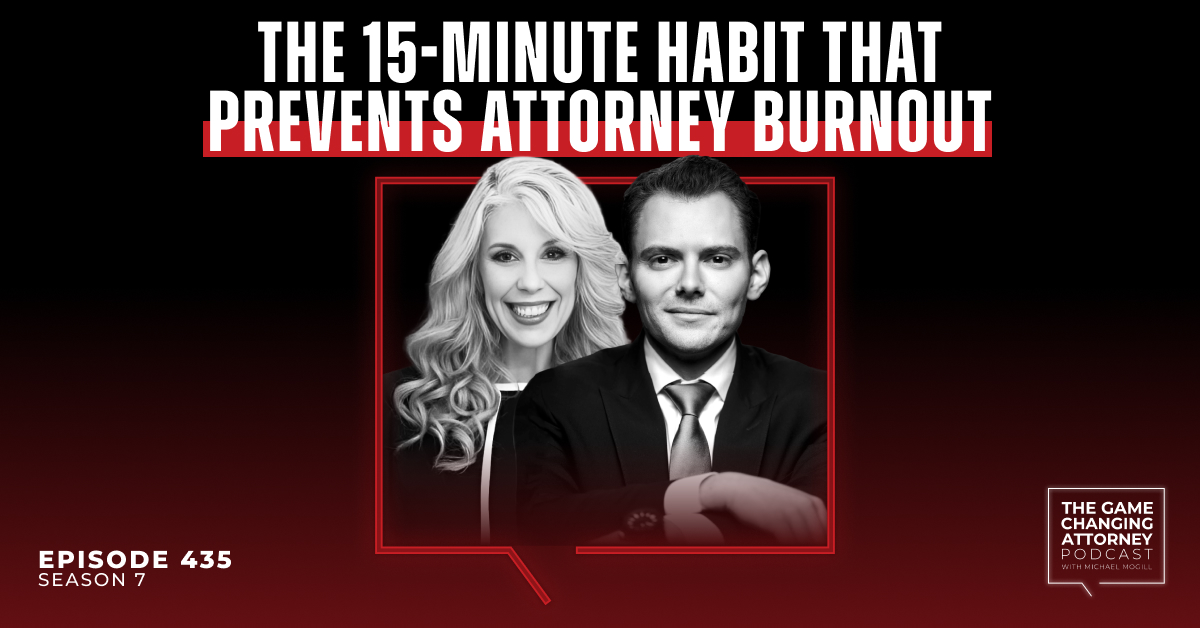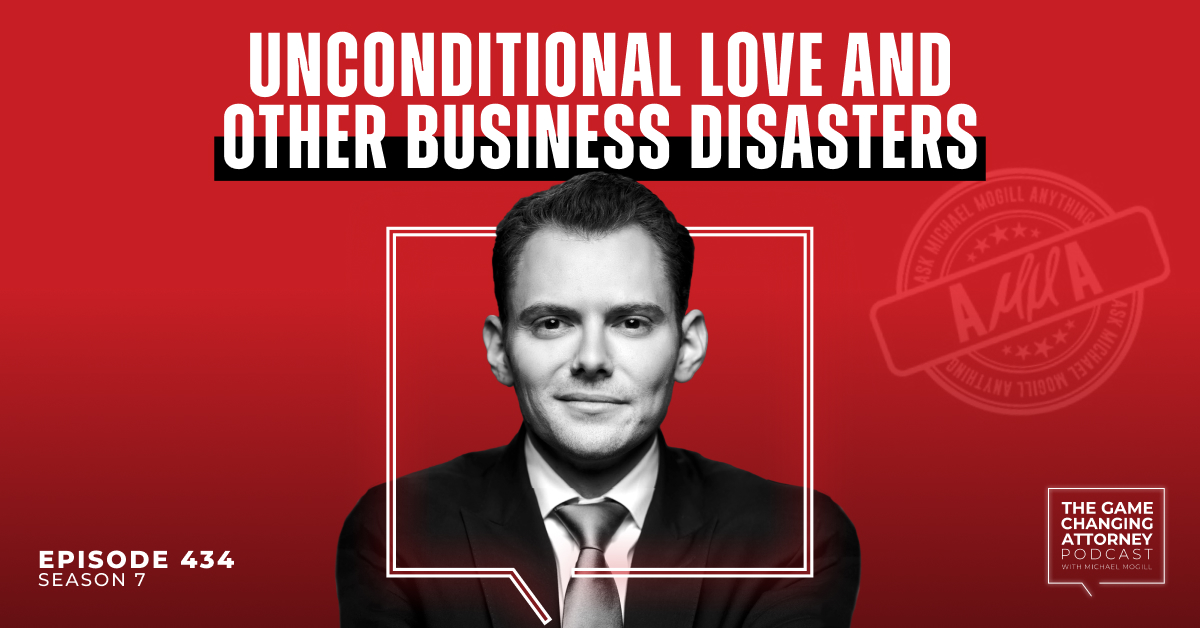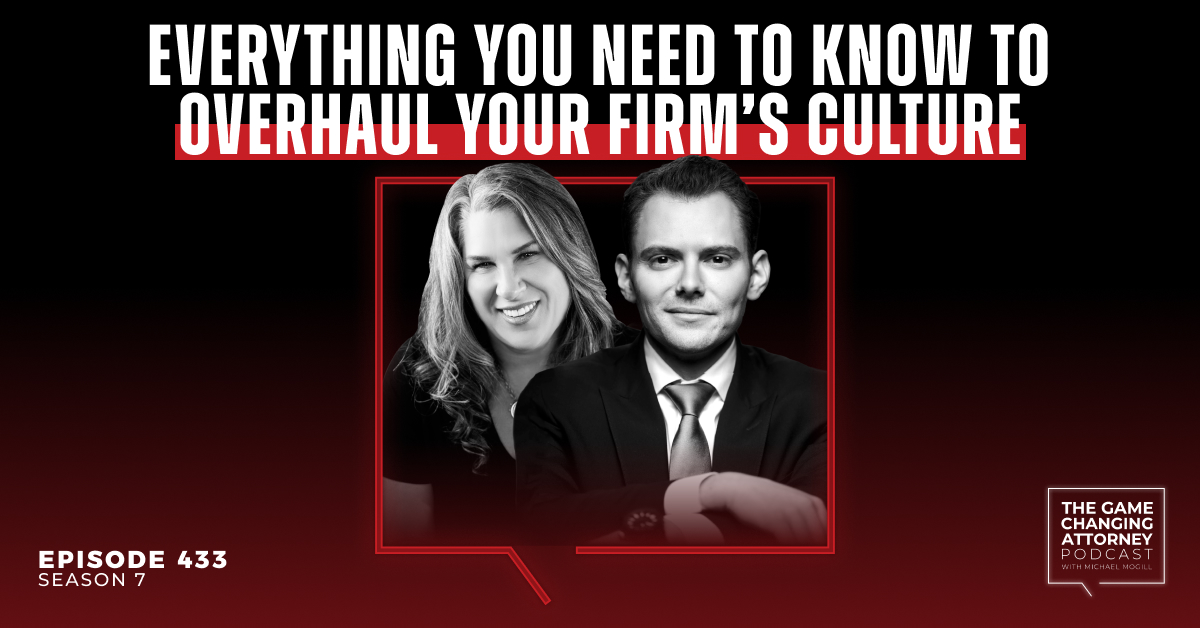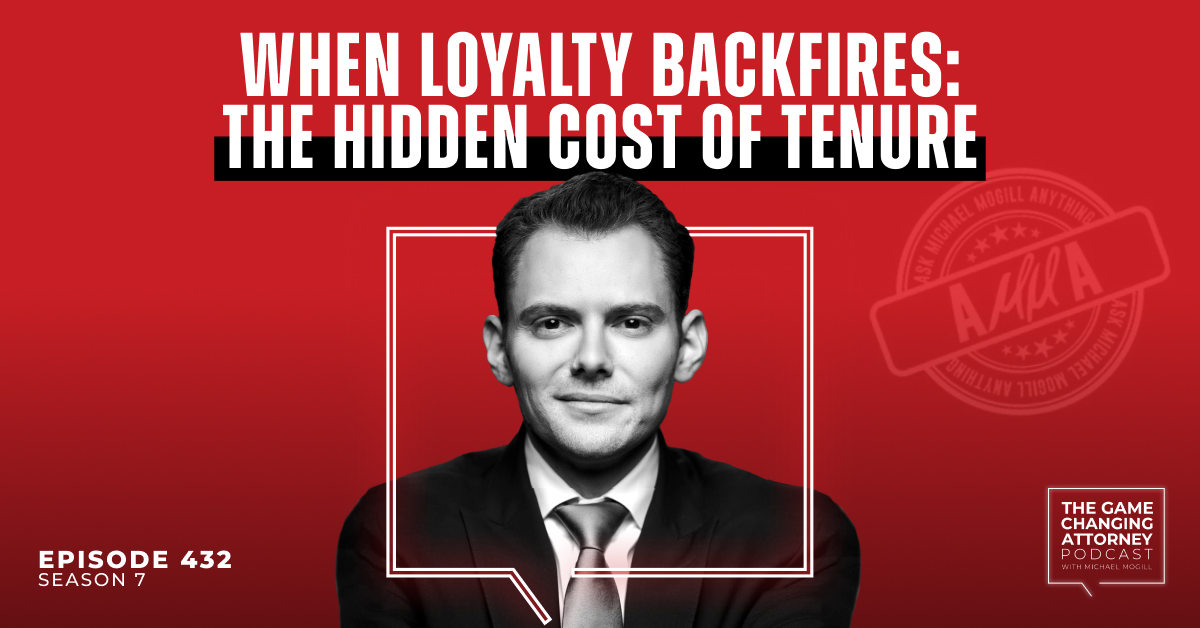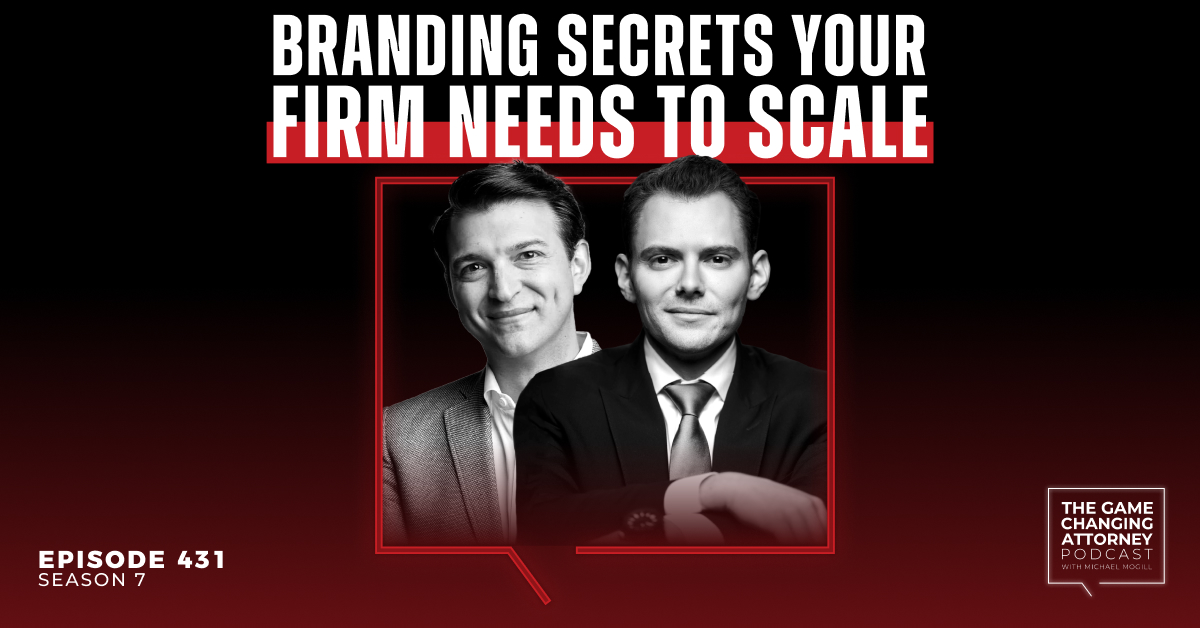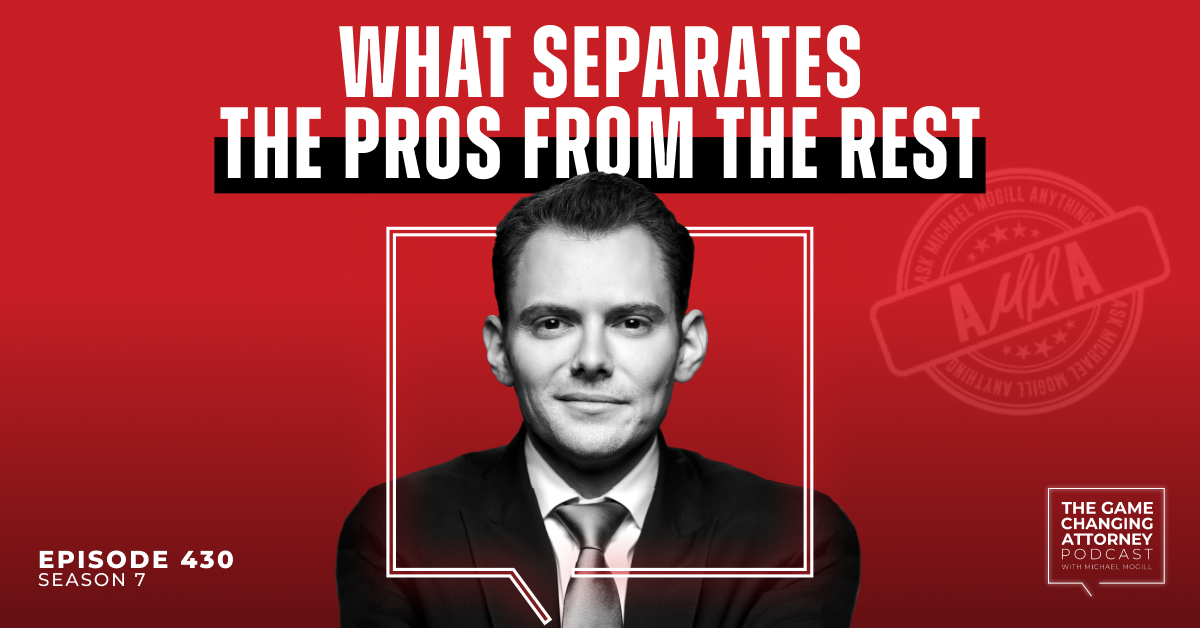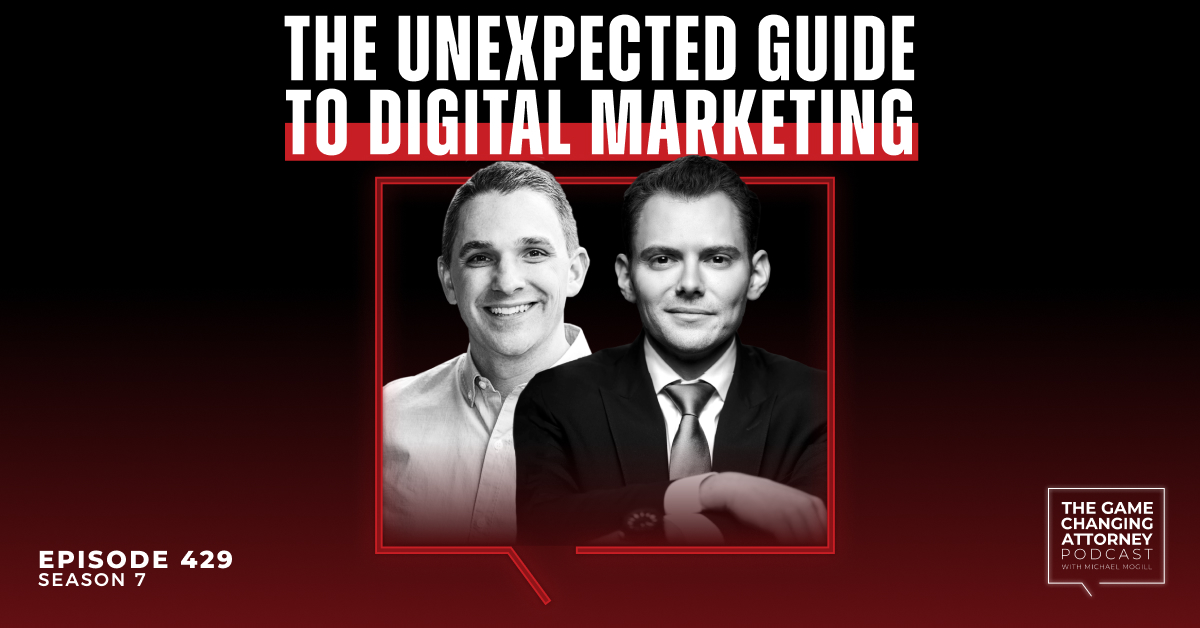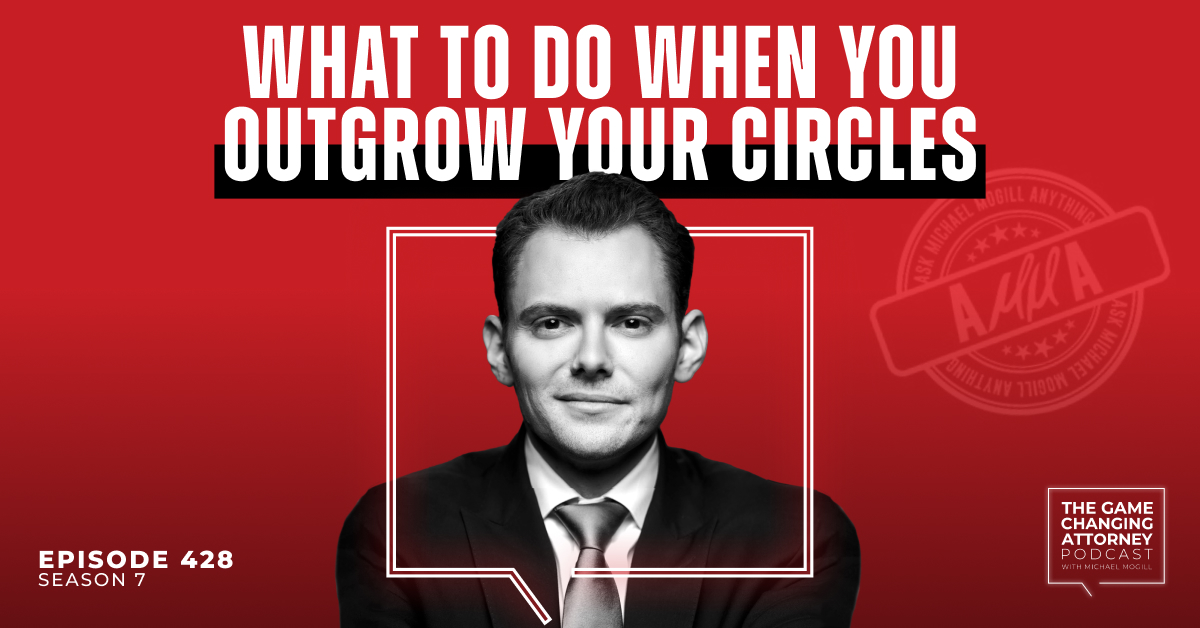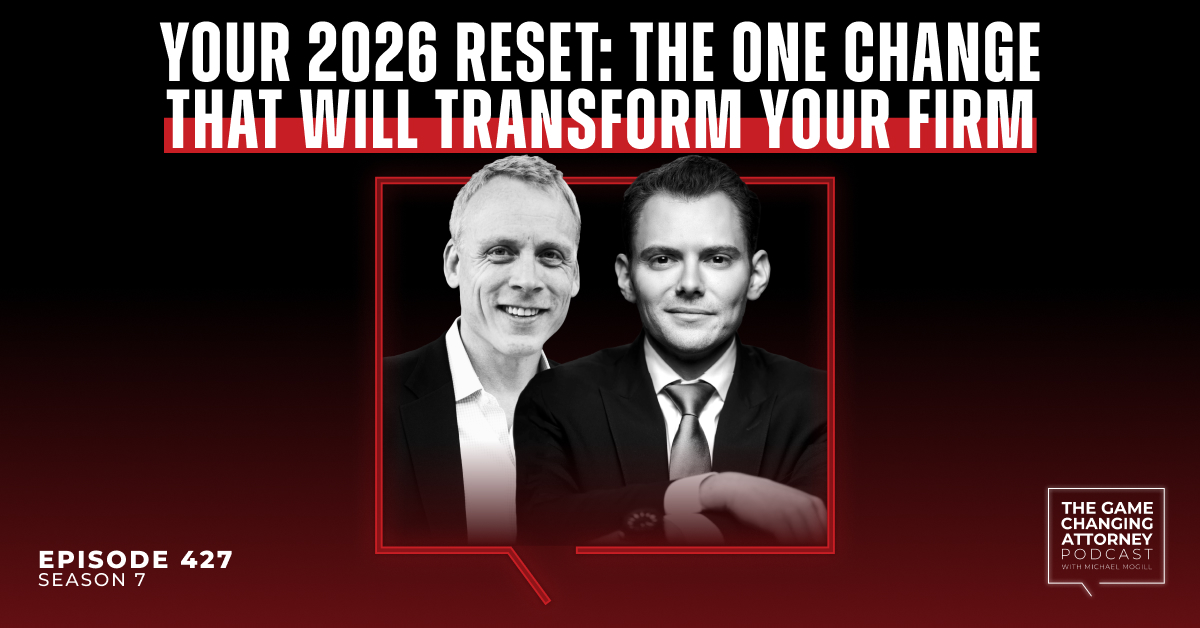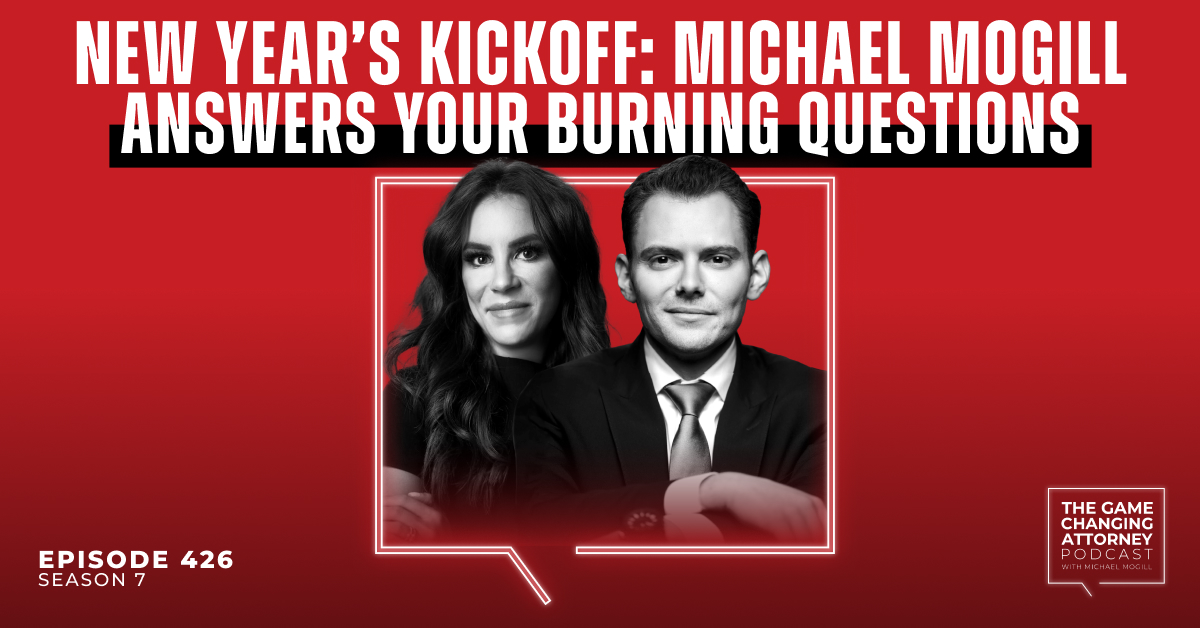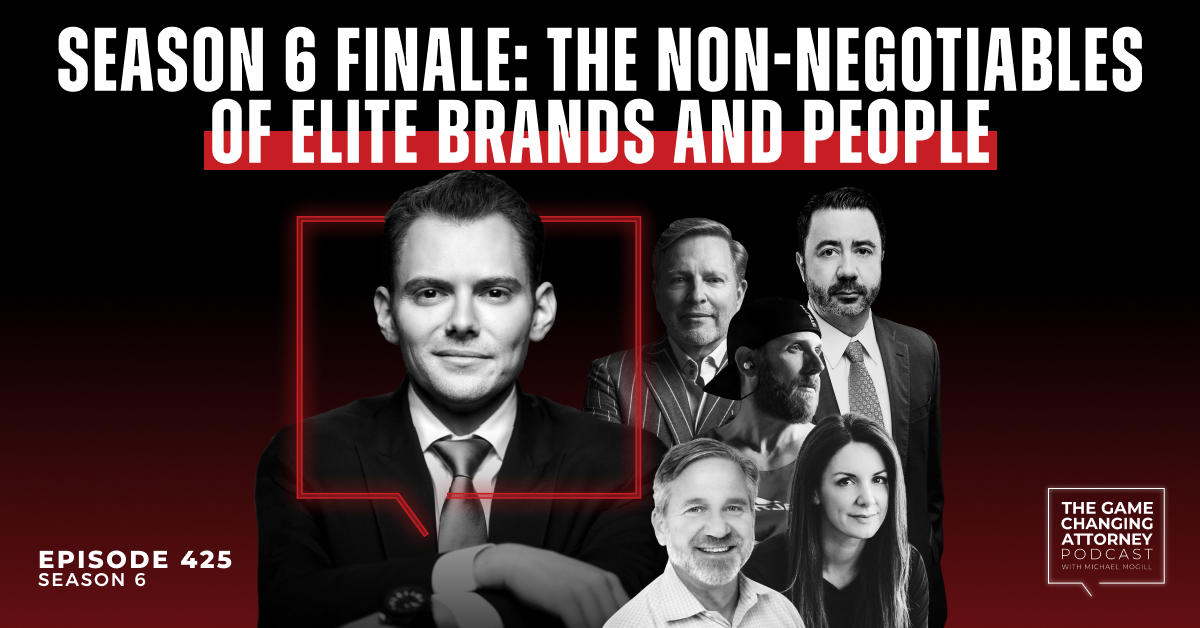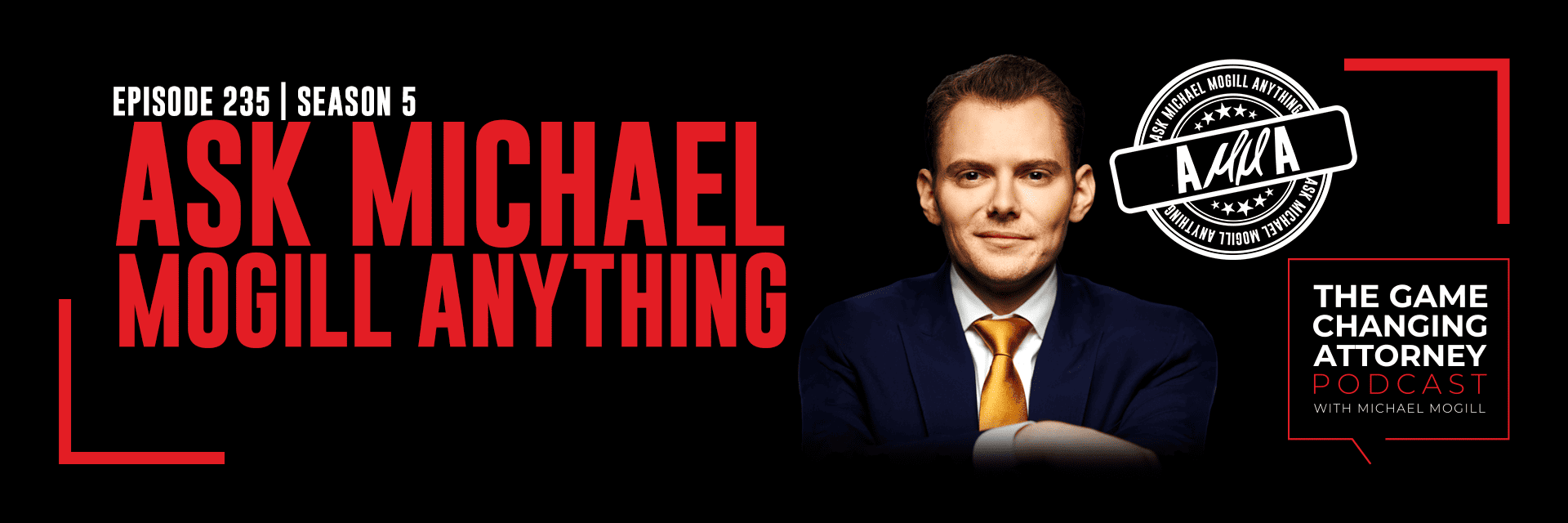
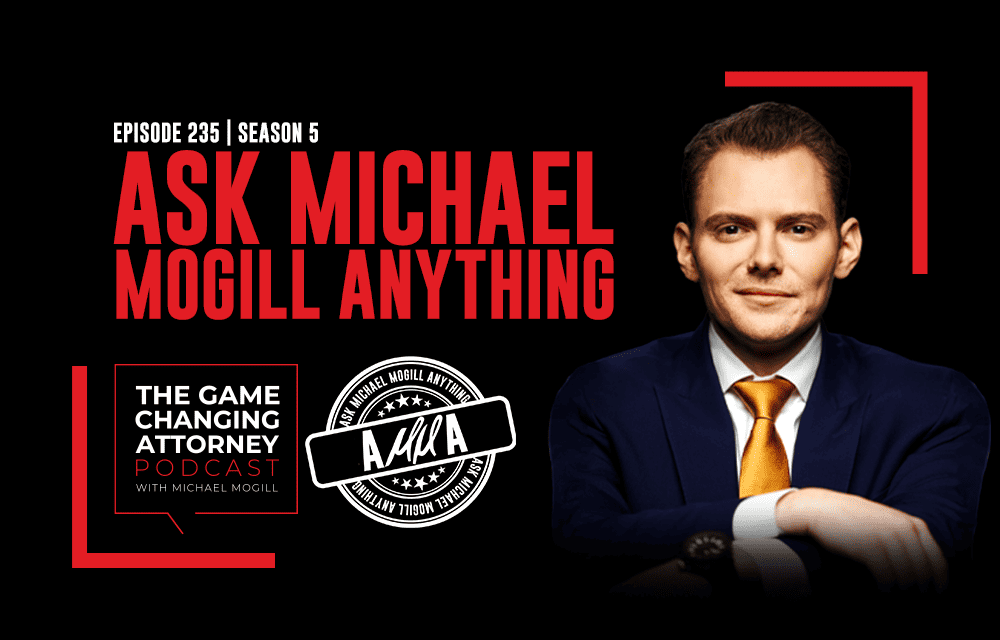
Episode 235 — AMMA — Lessons From Losses: Transforming Mistakes Into Opportunity
To move forward, it can be beneficial to look backward — but only with the right intention and perspective.
In this episode of The Game Changing Attorney Podcast, Michael and Jessica Mogill discuss:
- Why we learn more from our losses than our wins
- How to strike a balance between pursuing future goals and feeling pride in past and present accomplishments
- Why our goals and desires are subject to evolution
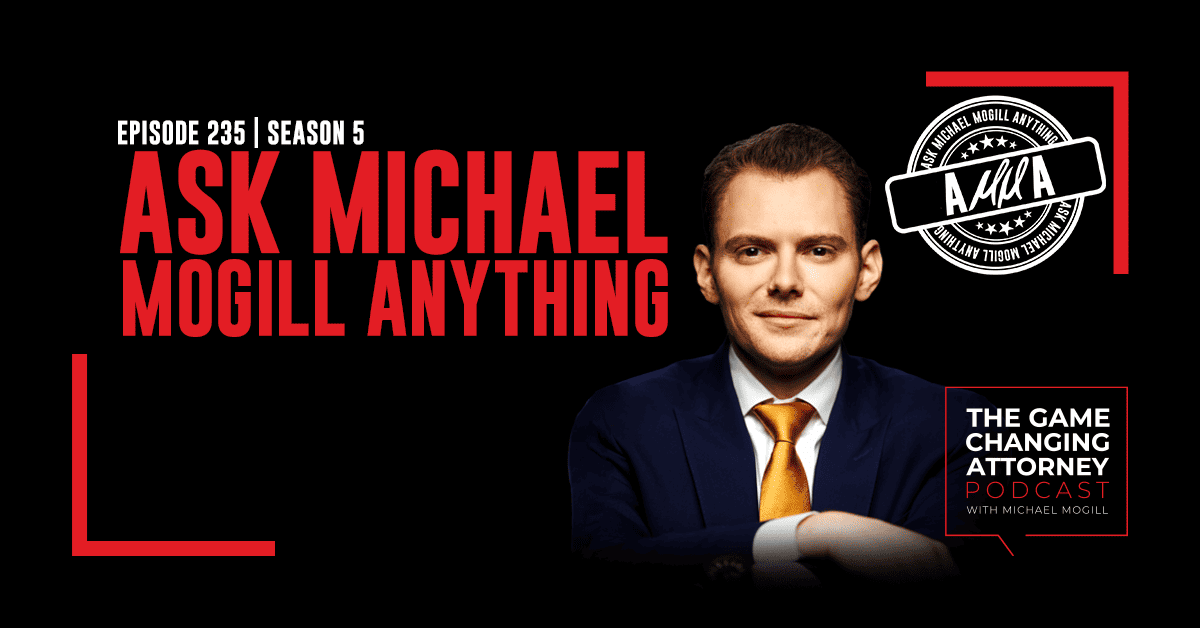
Listen & Subscribe
Show Notes:
A better way to view past mistakes. “‘Mistakes’ is another word for ‘experience.’ The people in my life that I’ve found that are the most successful also take the losses the hardest. But what they do is they take that loss to heart, learn from it, and then move on. They don’t dwell on the mistakes. If you’re one of these people who takes a hard punch down and doesn’t get back up, forget about your potential. It’s your attitude toward mistakes, and it’s understanding that it’s not really failure until you quit. Anytime something doesn’t go your way, that should be a learning lesson.”
Future > Past. “It’s important to be able to have those successes and actually celebrate and appreciate those wins and the things that you’ve learned. But your future should always be greater than your past. What you’re going to do next should always be greater than what you’ve done previously. That’s motivating and exciting. It doesn’t mean you should know how to do it — because chances are if you’re pursuing something that’s ambitious or some sort of large target, you may have never done it before. It’s going to come with a lot of unknowns as to how you get there and how you achieve it. That’s the exciting part. The exciting part is the journey of figuring it out.”
Stop trying to keep everyone happy. “If you’re trying to run this democracy in your organization where you’re trying to get everybody’s opinion and make everybody happy, you’re probably not going to grow a great organization. The reality of it is you’re going to have to make some difficult decisions that are for the greater good of the organization. That is the value that you provide as a leader. You are paid for your judgment and not your time, so you being able to exercise good judgment is obviously understanding that there will be some people you’re going to make happy, there will be other people that you don’t make happy — sometimes in the short term, sometimes even in the long term — but is this going to be a decision that makes the organization more competitive and allows everybody to be able to thrive long term?”
EPISODE RESOURCES & REFERENCES
Tom Brady
Super Bowl
Nick Saban
Game Changers Summit 2022 at the Mercedes-Benz Stadium
Connect with Michael
- Text directly at 404-531-7691

